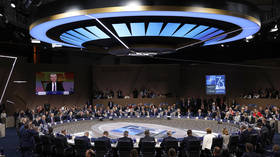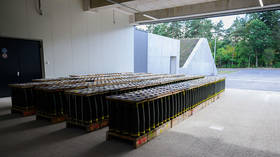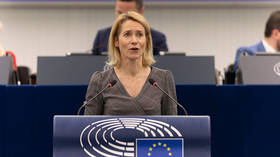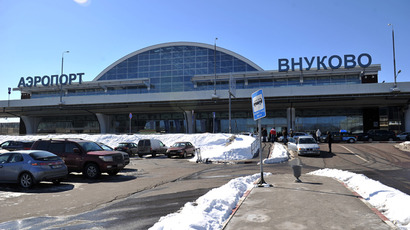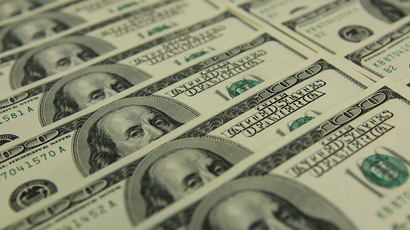Over $45 billion in ‘suspicious transactions’ left Russia in 2013

Cyprus, Hong Kong, the Cook Islands, Switzerland, Latvia, and other 'offshores' is where over $45.5 billion of Russian wealth ended up in the first half of 2013, according to new figures from the Russian Central Bank.
The figure is up more than a third year-on-year, which last year
reached 1 trillion roubles, Izvestia reports.
From 1994 to 2012, there was over $343.2 billion in similar
suspicious transactions out of Russia, which are seen as a
violation of tax laws.
“Regardless of the route and the technology of money
withdrawal, especially in terms of a liberalized capital account,
it reflects the deficit investment opportunities inside the
country, that is, a complicated investment climate,” Alfa
Bank analyst Dmitry Dolgin said, Izvestia reported.
The Central Bank of Russia has previously revealed billions in
‘dubious dollars’, or money used in ‘shadow
firms’ to avoid taxes and secure more optimal transfer pricing.
Some of these shadow firms are set up and shut down within 24
hours, and in the interim, billions of dollars are expedited
through a clandestine channel, or back hole of wealth.
Countries, or tax havens, can provide opportunities for investors
by lowering their corporate tax rates as well as income tax
rates, to make their own business climate more attractive in an
ever competitive investment environment.
Latvia the new Cyprus?
Cyprus was one of the most popular destinations for Russian
money, estimated at $30 billion by Russian Deputy Prime Minister
Arkady Dvorkovich.
“Cyprus was convenient as a warm and friendly island not far
away from Russia, easy to reach, jurisdiction is good, and taxes
are low. Banks are quite good and convenient to operate with
money, to proceed with transactions across the world, to transfer
money, to pay for services. And the rules of the game were known
to everyone. Not just for Russians, but many British and
Americans were using Cyprus as well. But again for Russians it
was a close and convenient jurisdiction,” Dvorkovich told RT
in an on-air interview.
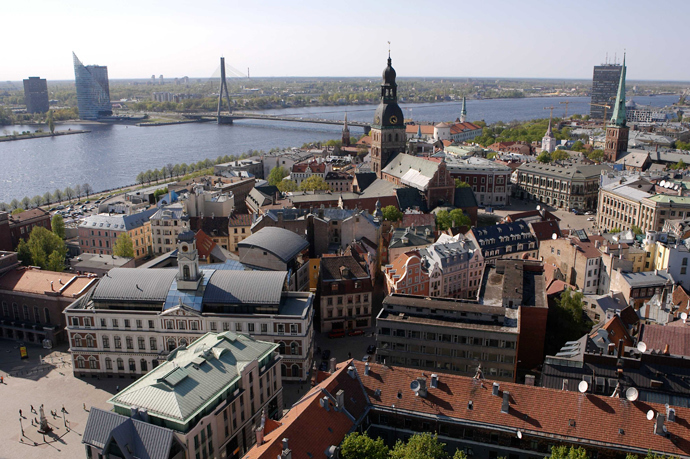
Now, Russian capital is flowing elsewhere.
“Capital has shifted to other areas. In particular, Latvia has
replaced Cyprus regarding withdrawal of capital from Russia,”
BKF analytical department head Maxim Osadchiy told Izvestia.
“Also, due to the pressure exerted by the U.S. tax authorities
on classic offshore areas of Europe, such as Switzerland,
Luxembourg and Liechtenstein, Russian dirty money has
started to flow into the opaque Asian offshore areas, such
as in Singapore and Hong Kong,” said Osadchiy.
Even banks in Dagestan are cashing in on the market of ‘dirty
Russian dollars', according to Osadchiy.
There have also been several cases filed in the Ural and Caucasus
regions, regional prosecutor Alexander Buksman said at the
International Banking Congress in June.
Crackdown plan
The Central Bank is going to closely scrutinize its neighbors
Belarus and Kazakhstan, which between them, according to the
bank, helped smuggle $25 billion in fictitious import schemes.
The Central Bank has proposed creating a customs union between
the three countries which would deal with case-specific
compliance money laundering issues.
There is also an idea, supported by the Federal Tax Service and
the Interior Ministry to create a universal ‘black list’ which
will include companies and individuals which have been involved
in illegal financial transactions, and will be an open database
which all commercial banks can access.
According to Central Bank data, the turnover of funds from
Russian banks to legal non-resident entities in the first 5
months of 2013 has reached about $241.3 billion, of which nearly
$60.9 billion was on loans for non-residents.
The Central Bank has identified a network of companies they
believe to be involved in the illicit money web which is costing
the country 760 billion roubles in lost tax revenue.
Most recently, the Central Bank revoked the license of
Makhachkala City Municipal Bank for a violation of money
laundering.
Russia has a 13 percent income tax rate.
Russia has a corporate tax rate of 20%, compared to the US, which
has 40%, and Germany, at 30%



